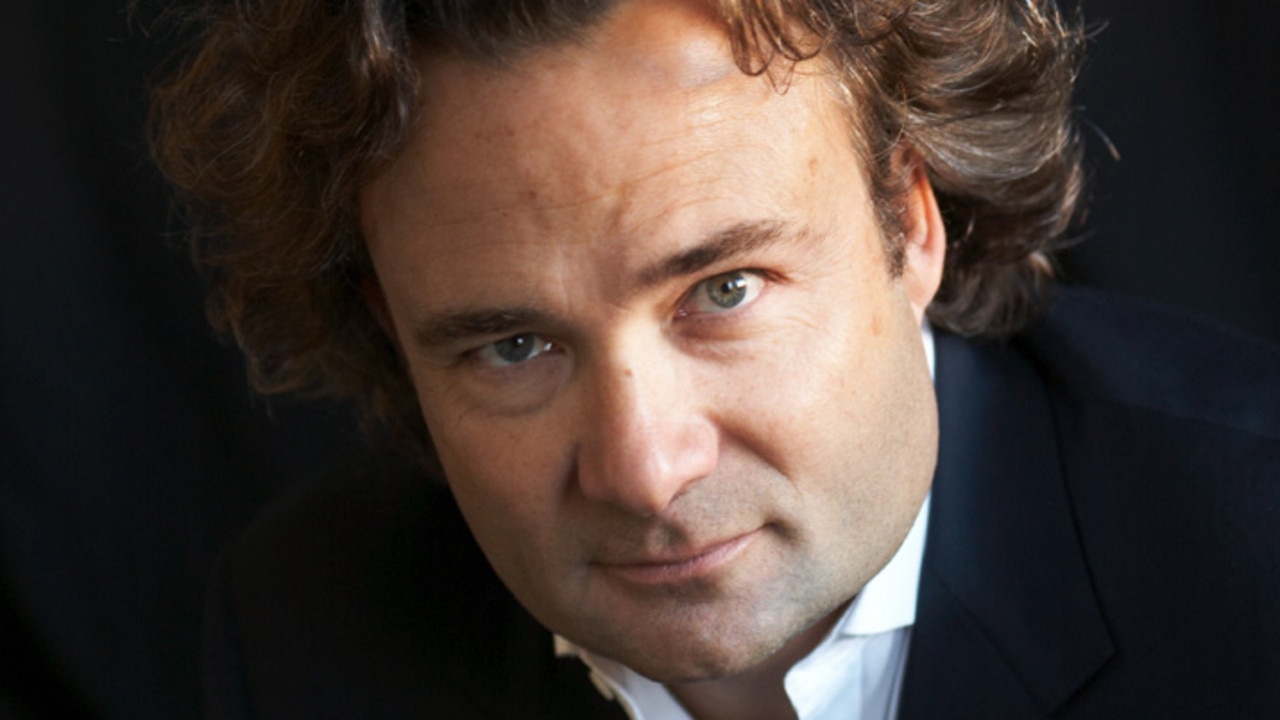Futurist reveals how the world will change in 20 years
A futurist has opened up about how the world will change in the next 20 years, including some crazy new technology coming our way.
Richard Watson has an enviable job title: futurist-in-residence at the Entrepreneurship Centre at the University of Cambridge.
Professor Watson characterises his modern-day auguries not as conclusions, but as “a mixture of provocations and speculations”.
“It’s very much based on feelings – it’s quite intuitive. I read a lot, I talk to a lot of people, and then I put an opinion out there for a reaction,” he told news.com.au’s I’ve Got News For You podcast.
So what does he think will happen in the future? Here’s what he told podcast host Andrew Bucklow.

Sex robots
Prof Watson predicted that sex dolls would become more realistic and lifelike in the coming years.
“At the moment, they’re just big dolls and they don’t have much functionality. But I think, theoretically, if you give that ten or 20 years, and you introduce a bunch of robotics technology – I’m not saying they’re going to be lifelike but they’re going in that direction,” he said.
This may sharpen interesting moral questions, Prof Watson posited.
“Is that infidelity if it’s a robotic doll? Can you put some famous face on it? And what can the famous person do about that?” he said.
“There are some quite awkward questions [that] could come out of this.”
Self-diagnosing toilets
Prof Watson also raised the idea of a toilet that can run tests for diseases based on excrement.
“I was talking to an industrial product designer in London who was telling me about these Japanese toilets where – essentially – there’s a wire down into the bowl, you have a pee and it can analyse what’s going on,” he said.
“It can send the data off to a doctor wirelessly.”
The idea of regular, commercial medical testing is not a new one, and has a slightly fraught history.
San Francisco-based start-up uBiome is bankrupt and two of its co-founders are considered fugitives by the FBI due to investigations about the veracity of its commercial tests. The tests were pitched to catch out diseases and abnormalities in the microbiome found in stool samples.
A similar mail-in testing service, Theranos, was recently in the public attention after its founder, Elizabeth Holes, was convicted of fraud over the company’s blood testing product.

Human-machine interfacing
Prof Watson also drew attention to the future of smartphones. He predicted that it was a possibility that humans would start getting implants to interact with computers.
He said that it was a natural evolution of electrodes that scientists apply to subjects’ heads to monitor electrical activity in the brain.
“I think there is potentially a future where we just put something on – a hat, or something,” Prof Watson said.
“We’ve moved away from talking to each other and manually interfacing with machines. We now increasingly talk to our machines and the machines talk back.”
Technology like this already exists, he said.
“For example, in brain-controlled wheelchairs for people who are severely disabled and can’t operate a wheelchair, you can operate it by thinking about operating it.”
There are grievous privacy concerns that could come out of this level of access, Prof Watson said. “Anything digital is hackable.”
Artificial Intelligence
Prof Watson said that he was not afraid of the classic science fiction trope of an AI uprising.
“The fact of the matter is, we’ve had AI for years and years and years. It’s just it’s narrow or a weak AI – it’s spellcheck, it’s Google Maps, it’s Netflix movie recommendations,” he said.
“Where the real Doomsday narrative seems to kick in, is when [AI] progresses … to super intelligence, essentially, and it becomes much more intelligent than humans and therefore becomes a threat.”
However, he questioned the logic of this fear.
“Why would an intelligent thing be a threat necessarily? It might not be. If you think back to Hitchhiker’s Guide to the Galaxy, there’s a very clever AI there and it just becomes incredibly depressed because of its intelligence,” Prof Watson added.





